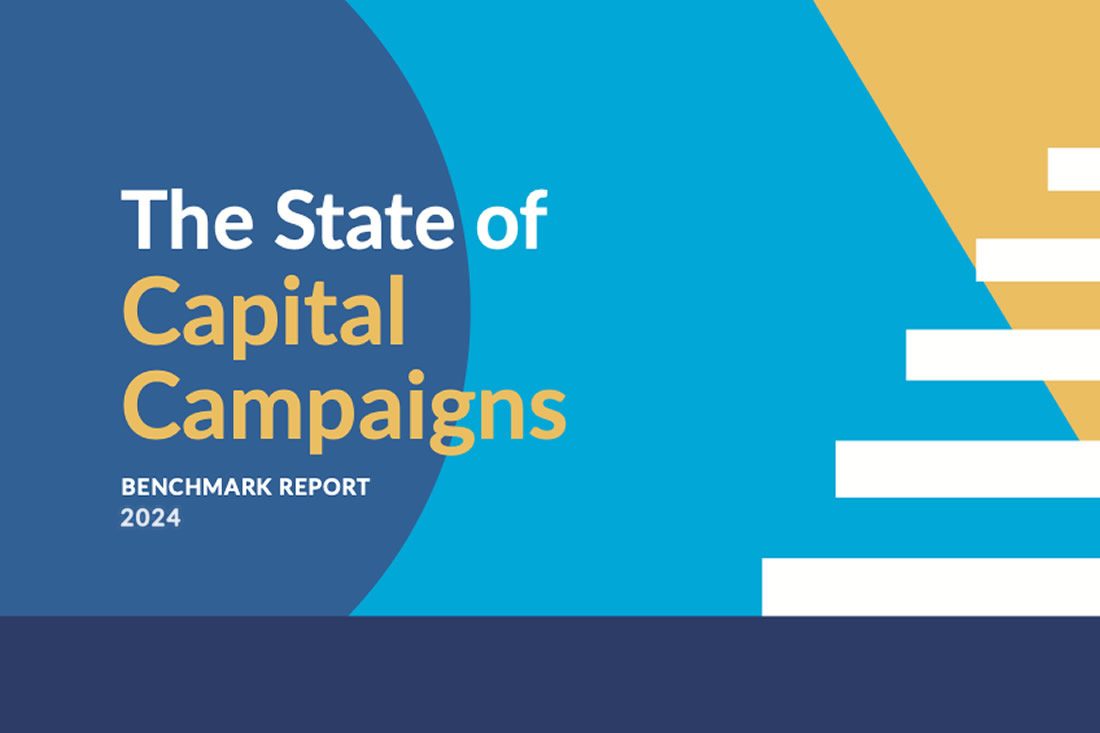How Consultant-Led Feasibility Studies Can Fail Your Campaign

I remember the moment I started having qualms about feasibility studies. I was sitting in a donor’s office conducting a feasibility study interview and I knew something wasn’t right.
I had been a capital campaign consultant for more than a decade at that point. I had completed many feasibility studies and worked with many organizations on their campaigns.
I had even written a big book on capital campaign fundraising that included a long chapter on feasibility studies, in which I described and endorsed the why’s and wherefore’s of the traditional study process.
But on that day, while I was interviewing a man named Ken on behalf of my client, I found myself thinking differently about the entire process.
Rethinking Capital Campaign Feasibility Studies
Ken was the head of a division of a large company with a corporate foundation that often gave generously to organizations in that community. Over the years, I had sat in Ken’s office interviewing him on behalf of one client or another on many occasions.
Ken and I had gotten to know one another. I knew a good bit about his giving priorities. And he knew that I was a trustworthy consultant who again and again guided organizations to success.
As usual, I was asking Ken my feasibility study questions and he was answering them. I was scribbling notes on my form. But that day, the process seemed rote.
He knew the questions I was going to ask and I had a good idea of what his answers would be. We were both going through the motions and doing our jobs.
In that moment, I knew things needed to change.
“Ken,” I blurted out, “I think this is going to be my very last feasibility study interview! It just doesn’t feel right.”
And that was my Final Feasibility Study Interview
And with that, a new flush of energy filled the room as we both agreed that the standard process didn’t work very well. He was as tired of the consultant-led interviews as I was.
Was the problem that I wasn’t doing my job well? Perhaps that played a role. I know that some of my colleagues continued to be inspired by those donor interviews long after I became disillusioned.
But I thought then, and believe even more fully now, that the problem with the traditional feasibility study process runs deeper.
Building Better, More Meaningful Relationships with Donors
Ken would have preferred to talk openly with the head of the organization I was representing. He would have welcomed the opportunity to build authentic relationships with the leaders of the nonprofits in his community – both those he funded and those he didn’t.
But for the most part, Ken didn’t get that opportunity.
Those executive directors seldom came to talk to Ken at all. And when they did, they were in fundraising mode, trying to convince him to give them a gift. The opportunity for probing, serious conversations had come and gone. They just wanted his money.
2 Critical Questions about Feasibility Studies
A long time has passed since that meeting with Ken. During those years, I have been exploring ways to improve on the standard practices.
I’ve wrestled with two questions:
- Why don’t most executive directors have probing, serious conversations with their largest donors long before they are ready to ask for a gift?
- Does the promise of confidentiality really encourage a donor to tell a consultant misgivings or concerns they would not share with the executive director? And is that good or bad?
Both are, I believe, important questions you should consider, particularly if you are planning a capital campaign.
Why Many Executive Directors Don’t Have More Conversations with their Largest Donors
Many executive directors believe that they should stay in touch with the people who give or could give large gifts to their organization. But in my experience, with all but a very few, it seldom happens.
Ask any executive director why they don’t have more donor conversations and they’ll be likely to tell you that they simply can’t make the time. And their best intentions generally don’t lead to organized action.
I believe there’s a bigger reason – the lack of context. Without a specific reason to speak with a donor, the conversation is likely to seem strange and inauthentic.
Whether or not the conversation is about money, both the executive director and the donor know full well what’s at stake. And meetings that don’t have a broader context may feel inauthentic. So directors and donors shy away from them.
Feasibility Studies present Organizations with a Genuine Opportunity to Build Relationships
However, when you have a genuine reason to speak with your donors, everyone benefits. And it’s easier than you might think…
- Schedule a set of leadership meetings to discuss a particular project or plan the organization is exploring.
- Determine what you want to learn through the meetings.
- Establish a criteria for who the executive director will speak with.
- Set a timeline and plan to write a brief report of your findings.
That kind of structure is what we recommend for organizations doing our Guided Feasibility Studies (more on those in a bit). But you can create that structure for your organization at other times, too.
A Consultant’s Promise of Confidentiality – Beneficial or Destructive?
Consultants have long argued that the promise of confidentiality gives donors an opportunity discuss issues regarding the organization that they might feel uncomfortable sharing with the executive director.
But that promise of confidentiality (implied or articulated) cuts both ways.
If a consultant probes for and gets negative comments during an interview, they are not at liberty to share that concern with the organization. The result may be destructive rather than beneficial. The donor being interviewed will have articulated a concern to a stranger, highlighting the problem. But the staff cannot then address the concern directly with the donor.
I have found that many donors would be happy to discuss challenging issues with an executive director if they are asked specifically for their thoughts.
Moreover, when a donor has a chance to discuss his or her concerns directly with the director, they can explore solutions or correct misconceptions right then and there, together.
An Alternative to Consultant-Led Feasibility Studies
Exploring these questions and others have led us at Capital Campaign Pro to develop a new approach to feasibility studies – Guided Feasibility Studies.
In a Guided Feasibility Study, an experienced campaign advisor who has conducted several feasibility studies themselves guides the feasibility study process — but the executive director (or other organization leaders) conduct the interviews.
This new approach works wonderfully well for organizations that have leaders who are willing and able to be trained to have probing conversations with their most important donors. The benefits of this model are threefold:
- Executive directors build stronger relationships with their donors (which is key to future gifts).
- Donors become more engaged and thoughtful about the organization.
- The process and results of the study is fully transparent.
To learn more about the Guided Feasibility Study approach, check out our more detailed explanation and discover whether it might be a better approach for your organization.
Free Download: Ultimate Guide to Feasibility Studies
This comprehensive guide will show you the ins and outs of conducting a feasibility study for your capital campaign.



As I read your article, I do not believe the fault is in the feasibility study process, but in the organization that is not having the right conversations with their donors and prospects. Donors should be engaged and involved at more levels than just writing a check and if the organization is not doing that, shame on them. To expect the study process to do that is not best practices or a smart tactic for the organization. The study has a purpose, but so does the development program in doing their education, asking, and thanking to keep all their donors providing more than just dollars.
Regarding the anonymous and confidential piece of the study, a good consultant will use that information to guide and advise their client/organiation to make changes and be aware of issues without breaking the commitment to the study participant.
Yes, absolutely agree. We are in a different age now — this is absolutely correct with donors who want to engage and are willing to share their thoughts. They want to be heard and understood, not just from the main professional contact they have built the deep relationship with. The Pres/CEO is KEY if/when orchestrated properly and accepts direction in this most important area: relationship building.
Thank you, Sue, for your great comment. I agree with you. We are in a different age now — an age where people want more robust involvement and transparency. I remember the times when we corresponded with people via letters rather than emails and texts. The quicker, more immediate and less formal types of communication we use today have led, I believe, to a change in the essential nature and quality of our relationships.
Thanks again for sharing your thoughts!
Thank you, Betty, for your insightful comment. I fully agree with you that donors should be involved more fully. But in my experience, that seldom happens enough at the leadership level despite the best of intentions.
And yes, I do believe that very good consultants can be constructive in how they handle critical comments from donors. That said, I do prefer it when the donor and the leader of an organization can have a real conversation in which they can discuss the problems as well as the opportunities.
Thanks again, Betty. Thoughtful comments like yours are invaluable to all of us working in this field.
Andrea